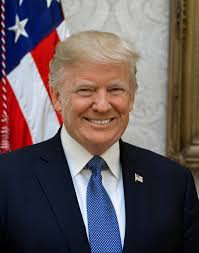
CIVIL Society Organisations (CSOs) have expressed concern over President Donald Trump’s executive order suspending foreign aid for a 90-day review, saying this has led to the termination of various programmes funded by the US throughout the country.
Trump issued the ban to re-evaluate and realign United States foreign aid, while awaiting guidance from the Department of State.
It has also emerged that the sector is facing another headache as the European Union (EU) has announced plans to review its multi-billion-dollar aid to low-income countries globally.
The EU said it would conduct a review of its aid to closely align the bloc’s funding allocation with its foreign policy interests amid a challenging international environment.
The EU and its member States were collectively the biggest donors for international aid in the world, providing nearly €96 billion in 2023, while the US spent nearly US$72 billion (€69,852
billion) in foreign support.
In a report stemming from a webinar held by the National Association of Non-Governmental Organisations (Nango) to map the way forward for CSOs in a politically volatile environment, panellists noted that while initially framed as a temporary 90-day review, the freeze has morphed into de facto programme terminations, disproportionately affecting CSOs engaged in various diverse initiatives funded by the USAid.
“The shift from USAid to direct US State Department oversight presents new challenges in accessing funds, including delays in waivers and grant renewals.
- CSOs dare African countries to implement humane drug policies
- Village Rhapsody: Marry Mubaiwa abuse: A stain on our conscience
- CSOs dare African countries to implement humane drug policies
- Village Rhapsody: Marry Mubaiwa abuse: A stain on our conscience
Keep Reading
“The departure of USAid personnel from key country offices has exacerbated uncertainty, leaving many organisations without direct communication channels to address ongoing projects or negotiate transitional support,” the Nango report said.
Participants said the order, which has seen several impactful programmes being cut off amid implementation, could have very dire effects on the country's governance system.
“Many organisations are now prioritising operational survival, with some forced to scale down activities or even shut down due to funding constraints.
“The executive orders, particularly those targeting development works related to gender ideology and human rights, have placed CSOs working in these sectors under increased scrutiny,” the report said.
The report said on top of the uncertainty, there was ambiguity surrounding how programmatic efficiencies
will be assessed under the new framework.
“The funding pause’s impact extends beyond traditional CSOs to include UN agencies, INGOs, consortiums, networks, contractors and grant recipients, creating a ripple effect across the broader development ecosystem.
“A particularly concerning aspect of the discussion centred on the potential reversal of health sector gains, particularly in HIV/Aids treatment, due to reduced donor funding as a result of the withdrawal of the President’s Emergency Plan for Aids Relief programme.
“This underscored the pressing need for alternative financing mechanisms, such as local philanthropy and domestic resource mobilisation to ensure the sustainability of critical programmes.”
The participants also said there was an urgent need for a shift in mindset and approach to development work, emphasising the importance of thinking beyond immediate challenges and focusing on the long-term agenda.
They said there was a need to advocate for a transformation of resourcing models and reimagining relationships between international donors and local CSOs.
“Rather than viewing the USAid funding pause solely as a crisis, it was framed as an opportunity for constructive deconstruction, an occasion to influence the emerging New World Order of development work by reassessing priorities, strengthening local resilience and fostering financial independence” the report said.
Meanwhile, economist Masimba Kuchera said the possible EU funding freeze would have devastating consequences on social welfare, including food and education, among others.
“The aid review affects the well-being of mostly marginalised groups benefiting. It's a serious problem as most do not have access to financial freedom and options to assist. The gap is widening after the US aid freeze,” he said.
Kuchera said the freeze was a wake-up call to our government known for misplaced priorities at the expense of ordinary citizens.
“Going forward, the Zimbabwean government must redirect domestically-generated funds to productive areas of the economy,” he said.
Development economist at Africa Centre for Economic Justice, Chenayi Mutambasere, said the proposed EU foreign aid funding review had significant implications for Zimbabwe and other African nations.
“Many African countries facing food insecurity and health crises, like Zimbabwe, may struggle to meet the needs of vulnerable populations without adequate external support,” she said.
“Another challenge is that ongoing projects aimed at poverty reduction and sustainable development could face delays or cancellations, impeding progress towards long-term goals.”
According to the EU, the commission wants to become more transactional by revamping foreign aid and making it more “targeted for our partners.”










